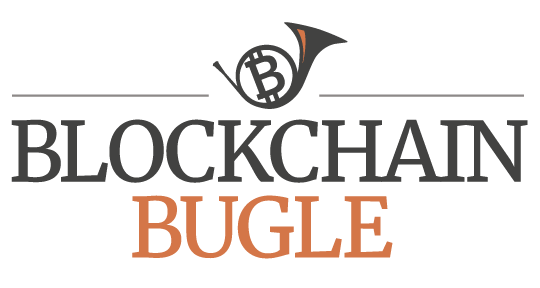The Blockchain Developer Shortage: Emerging Trends and Perspectives

Amid the steady rise of blockchain innovation, there are growing concerns about a looming shortage of qualified developers. With demand for talent outstripping supply, many companies are having to dial back blockchain related projects that are poised and strategically positioned for a rapid market launch.
In his book The Business Blockchain, thought leader and author, William Mougayar, briefly explores this emerging trend, noting that by his mid-2016 estimates, there were only “5,000 developers dedicated to writing software for cryptocurrency, Bitcoin, or blockchain in general.” He admits that “perhaps another 20,000 had dabbled with the technology, or have written front end applications that connect with the blockchain.”
All of this, he says, pales in comparison with the nine million Java developers worldwide, and about 18.5 million software developers in the world. But as the book documents, there is a silver lining of good news, namely, the blockchain’s good fortune of being tied to languages and scripts that are already in popular use — like Java, Javascript, C++, Node.js, Python, Golang and Haskell.
Says Mougayar, “Getting more developers proficient on Blockchain technology is key, and part of its successful evolution. We can’t avoid not having a critical mass of knowledgeable software engineers that know how to program blockchains and develop blockchain applications. Whereas it might take a few weeks of effort today to get a seasoned developer up to speed on blockchains, it might eventually take only two days.”
Mougayar believes that efforts to address the prevailing blockchain developer shortage can be impacted by the following:
- More general mass awareness about the blockchain;
- Popularity of certification programs, such as from the CryptoCurrency Certification Consortium;
- Formal education programs specializing in this field, such as the Master of Science in Digital Currency, University of Nicosia in Cyprus.
Steven Nerayoff, Founder and CEO of Maple Ventures, a Venture Capital firm primarily focused on emerging blockchain-based technologies and payment systems, says the blockchain developer shortage is quite evident among many early stage companies he interacts with. “If you take high level programmers and cryptographers, like Gavin Wood, or someone who works for DARPA or NSA out of the equation, you’re now talking about only a few hundred people that truly understand this blockchain development at a foundational level. That’s such a small group of people for a technology niche that could significantly change how people organize and live their lives.”
Nerayoff goes on to say that this talent shortage is such that there are more projects in the blockchain space than people who are qualified to contribute. He does believe, though that this problem will slowly balance itself out as more and more qualified people migrate out of the government sector, and matriculate from colleges and universities.
Nerayoff says that the prevailing shortage will continue to be acute for those startups working on what he calls “uninteresting projects.”
“As an advisor to Ethereum, I can personally tell you that people were fighting to get onboard there. They had no problems getting qualified programmers. The same with Lisk. They’re a little younger than Ethereum, but as I’m observing their hiring spree right now, there are lots of people who are excited to go work there in large part because they’re cultivating so many new ideas and fresh approaches. In my opinion, the best programmers always want to go to the most interesting projects, while others will continue to struggle to hire people.”
Nako Mbelle, Founder and CEO of the Toronto-based Fintech Recruiters, sees the daily challenges businesses face in recruiting and retaining top (blockchain) developer talent. She says that Python developer shortages are particularly acute, and that her firm has also been receiving requests for functional developers in Haskell and Scala, two niche areas which she says are particularly hard to find. Erlang, Golang and Python are among the other most commonly requested skills. “These functional programming skills seem to be all the rage these days.”
According to Mbelle geographical demand is greatest in the U.S., particularly in New York City, followed by London and the UK. Strangely enough, she says, her firm is getting requests from as far away as Tokyo, Japan.
So what needs to take place in order to address these shortage concerns moving forward? Says Mbelle: “Companies and startups should offer more mentorship programs for developers who are just learning functional programming skills. There are simply not enough software developer internships available. Everyone wants someone with three to five years hands-on experience, yet they often won’t give developers who are trying to cross-over into the fintech space a chance to prove themselves.”
Mbelle continues: “In order to attract talent, startups should be flexible about remote working options. We’re seeing a trend where startups want people in the office in order to build a corporate culture. However, the more experience a software developer has; the more likely they will want to work remotely, or have very flexible working environments.”
With respect to the long-term picture surrounding this talent shortage, she concludes: “I believe that more and more fintech companies will open up offices in Eastern Europe and Russia, because that seems to be where many developers are from and currently located. I think we’ll also see more Functional Programming (training) bootcamps open up. And hopefully there will be more software developer mentoring and internship programs geared toward developers seeking to get into the space.”
Agentic Group LLC Is a global membership-driven consortium providing insight and consulting to corporations, non-profit organizations and government agencies seeking to understand and leverage emerging blockchain applications and digital currencies. Rik Willard, its founder and managing director, believes that the shortage is temporary. “Sure I think there is a shortage. But I think, as the space evolves, you’re going to find that the numerous non-profits and other learning outlets that are teaching blockchain technologies will have an impact on this issue.”
Willard says that what the blockchain world is facing at present in terms of talent deficiencies is much like what took place during the early days of the web. “There weren’t that many developers on the web in the early days. So various schools, academies, and groups got involved and began minting qualification certificates for the internet, ultimately leading to a massive influx of skilled programmers.”
Shidan Gouran is an angel investor with several blockchain startups and innovative tech firms, as well as the organizer of the Blockchain Event, a North American conference series. Gouran says that he doesn’t subscribe to the notion of a programmer shortage. “I hear people say that but in my experience there are lots of talented developers out there who are not involved with the blockchain space because it, frankly, isn’t important enough for them to be involved with.”
He notes that there is nothing inherently more difficult about blockchain than there is with any other type of development. “You don’t have to be a cryptography wizard to understand how to develop a blockchain; you just have to know how to use cryptographic protocols. That’s something that people have been doing forever.”
He says that the blockchain value proposition needs to make more commercial sense in order to get more programmers and developers involved. “More than anything, I think there is a shortage of good ideas. If a startup has a project that’s interesting and can really impact commerce and lives, then qualified people will sign on to start working on it.”
“I’ve often said that we need fewer white papers and more code,” said Gouran. “We need people who are starting projects and actually seeing them through rather than just doing crowd sales, raising money and kind of squandering it away, which we’re seeing a lot of nowadays. Ultimately that’s what I believe will attract top talent to this space.”
The post The Blockchain Developer Shortage: Emerging Trends and Perspectives appeared first on Bitcoin Magazine.


